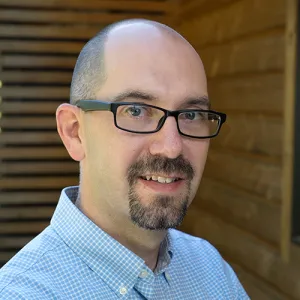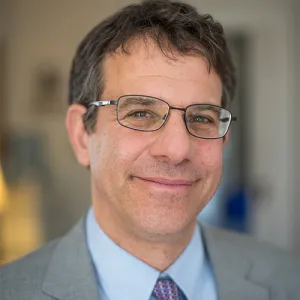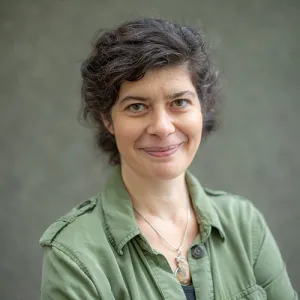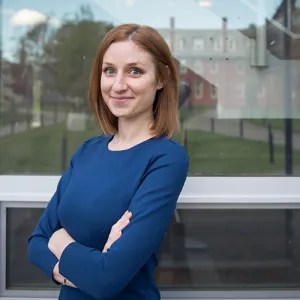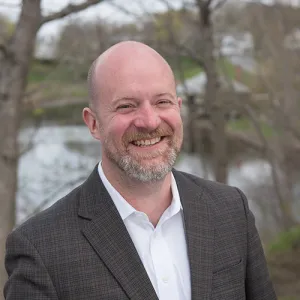
Urban Studies
Cities are physical environments—they are social settings, economic phenomena, and political arenas. An understanding of these complex social structures can come only from an analysis that transcends the narrow perspective of any single discipline. The minor in urban studies offers students a chance to study the processes and problems of urbanization from a variety of perspectives. It is designed with enough flexibility to allow a student to choose among many possible combinations, but requires one to experience at least three different disciplinary approaches.
Requirements & Courses
Urban Studies Minor
The minor in urban studies offers students a chance to study the processes and problems of urbanization from a variety of perspectives. It is designed with enough flexibility to allow a student to choose among many possible combinations, but requires them to experience at least three different disciplinary approaches.
Requirements
Six courses from at least three different departments or programs. Courses offered at other Five College campuses may be included in the minor, with the approval of one of the advisers. A sample listing of approved Smith courses can be found on this page under the Courses tab. However, each student will craft their own minor with the help of the minor adviser and may include courses not on this list. Please consult home departments for the year and semester each course is offered.
Crosslisted Courses
ANT 257 Urban Anthropology (4 Credits)
This course considers the city as both a setting for anthropological research and as an ethnographic object of study in itself. The class aims to think critically about the theoretical and methodological possibilities, challenges and limitations that are posed by urban anthropology. Students consider concepts and themes such as urbanization and migration; urban space and mobility; gender, race and ethnicity; technology and virtual space; markets and economies; citizenship and belonging; and production and consumption. Enrollment limited to 40. Social Science
Fall, Spring, Alternate Years
ARH 212 Ancient Cities and Sanctuaries (4 Credits)
This course explores many different aspects of life in the cities and sanctuaries of the ancient Near East, Egypt, Greece, Etruria and Rome. Recurrent themes include urbanism, landscapes and patterns of worship, including initiation, sacrifice and pilgrimage. The class probes how modern notions of the secular and the sacred influence interpretation and how sometimes the seemingly most anomalous features of the worship of Isis or of the juxtaposition of commercial and domestic space within a city can potentially prove to be the most revealing about life in another place and time. Counts for ARU. Arts; Historical Studies
Fall, Spring, Variable
ARH 285pm Topics: Great Cities-Pompeii (4 Credits)
A consideration of the ancient city: architecture, painting, sculpture and objects of everyday life. Women and freed people as patrons of the arts are emphasized. The impact of the rediscovery of Pompeii and its role as a source of inspiration in 18th-, 19th-, and 20th-century art is discussed. No prerequisite. Arts; Historical Studies
Fall, Spring, Variable
EDC 200 Critical Perspectives in the City (4 Credits)
This course explores how the challenges facing schools in America’s cities are entwined with social, economic and political conditions present within the urban environment. Using relevant social theory to guide the analyses, students investigate school reform efforts at the macro-level by looking at policy-driven initiatives such as high stakes testing, vouchers and privatization, and at the local level by exploring the work of teachers, parents, youth workers and reformers. Fieldwork opportunities are available for students. Enrollment limited to 35.
Fall
EDC 396 Seminar: Researching Education (4 Credits)
Today education is a global phenomenon with widespread implications for individuals and communities. In this seminar, the class studies education as a social construct through interdisciplinary and qualitative research approaches. To do so, students engage with current theoretical and historical perspectives of research as well as practical methodological explorations. Across learning activities, students are asked to examine how research can reproduce or disrupt current structural inequalities and power imbalances in ways that advance social justice. By weaving opportunities to learn and deconstruct the theories shaping research methodologies, this course is designed to support students as they critically examine education across contexts, understand the complexity and plurality that currently characterizes research, and gain familiarity with its practice. Restrictions: Juniors and seniors only. Enrollment limited to 12. Instructor permission required.
Fall, Spring, Annually
GOV 271 Colloquium: Global Cities (4 Credits)
This course studies different urban experiences across the world. The course introduces the process of urbanization and addresses the complex relationship between urbanization, globalization and inequality. Throughout the course, students explore a series of case studies to provide concrete examples of how different cities such as London, New York, Berlin, Shanghai, Stockholm and Istanbul responded to globalization by paying attention to different topics such as pandemics, migration and urban movements. In addition to the academic literature, students make use of newspapers and films to address the promises and political dilemmas of urban life. Designation: Comparative, International Relations. Enrollment limited to 24. Social Science
Fall, Spring, Alternate Years
HST 167 United States, 1877-1945: Race, Capitalism, Justice (4 Credits)
Survey of the major economic, political and social changes of this period, primarily through the lens of race, class and gender, to understand the role of ordinary people in shaping defining events, including industrial capitalism, colonialism, imperialism, mass immigration and migration, urbanization, the rise of mass culture, nationalism, war, feminism, labor radicalism, civil rights and other liberatory movements for social justice. Enrollment limited to 40. Historical Studies
Fall, Spring, Variable
LSS 220 GIS for Landscape & Urban Studies (4 Credits)
GIS for Landscape & Urban Studies provides a critical lens for understanding landscapes, the built environment, and the complex interplay between geospatial environmental and social concerns with the implicit power of the act of mapping them. Emphasizing bias, equity, and ethics, the course examines how geospatial data informs planning and reflects social justice issues like green space access, housing density, and food insecurity. Students gain technical expertise while critically engaging with the societal impact of mapping. Students use GIS tools like ArcGIS Online, QGIS, and Social Explorer to develop skills in geospatial analysis, data visualization, and cartography. Enrollment limited to 20. Social Science
Fall, Spring, Variable
Additional Course Information
The minor consists of six courses from the following list but must contain choices from at least three different departments or programs. Courses offered at other Five College campuses may be included in the minor, with the approval of one of the advisers.
Africana Studies
- AFR 245 The Harlem Renaissance
Anthropology
- ANT 257 Urban Anthropology
Art
- ARH 212 Ancient Cities and Sanctuaries
- ARH 250 Building Baroque Europe
- ARH 266 Architecture in the United States of America
- ARH 283 Architecture Since 1945
- ARH 285 Great Cities
- ARS 388 Advanced Architecture: Complex Places, Multiple Spaces
Economics
- ECO 230 Urban Economics
Education
- EDC 200 Education in the City
Environmental Science and Policy
- ENV 237 Seminar: Environmental Justice in an Urbanizing World
Government
- GOV 204 Urban Politics
- GOV 271 Global Cities
History
- HST 267 United States Since 1877
Landscape Studies
- LSS 230 Urban Landscapes
- LSS 315 Urban Ecological Design
Sociology
- SOC 213 Race and National Identity in the United States
- SOC 214 Sociology of Hispanic Caribbean Communities in the United States
- SOC 218 Urban Sociology
Faculty
Contact Urban Studies
Wright Hall 129
Smith College
Northampton, MA 01063
Phone: 413-585-3572
Administrative Coordinator: David Osepowicz
Program Director: Steven Moga
Individual appointments may be arranged directly with the faculty.
